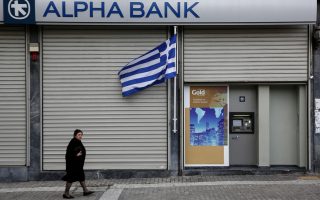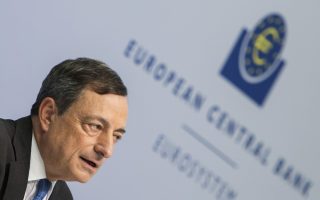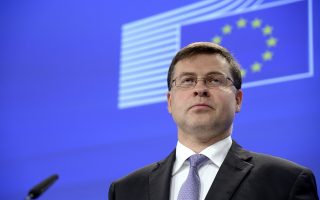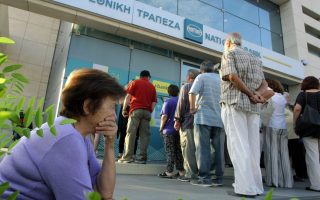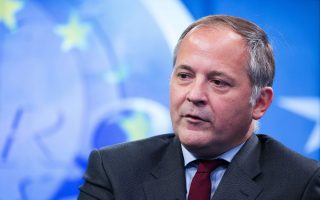Déjà vu for Draghi as ECB debates whether more stimulus needed
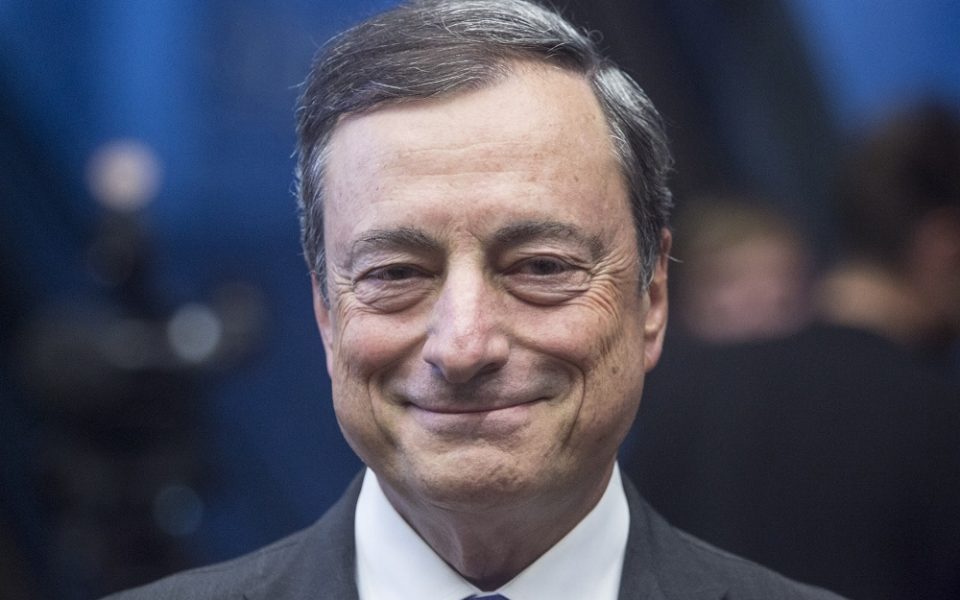
Mario Draghi can’t catch a break.
After overcoming a recession, Greece’s debt crisis and a damaged financial system, the European Central Bank president should be celebrating a slowly improving economy. Instead, an emerging-market slowdown is threatening the outlook and inflation that remains obstinately low. That’s put policy makers back where they were a year ago: considering once again if they need to do more to pump up price growth.
“There’s a lack of inflation,” said Peter Dixon, an economist at Commerzbank AG in London. “The global backdrop against which the euro-zone economy is operating has clearly deteriorated — that’s potentially one of the motivating forces behind the ECB’s desire to want to put more stimulus on the table.”
As ECB officials wait for euro-zone growth data this week, the slowdown in China and other emerging markets has prompted a drop in commodity prices, confounding their attempt to stoke price pressure via bond buys to the tune of 60 billion euros ($64 billion) a month. That downturn overseas also carries the risk of putting the brakes on European expansion, which thus far has benefited from an uptick in real incomes and higher consumer spending.
The 19-nation economy probably expanded 0.4 percent in the third quarter, matching the pace in the previous three months, economists in a Bloomberg survey said before data due on Friday.
Draghi has all but committed to further easing by invoking the term “vigilant,” which his ECB predecessor Jean-Claude Trichet used to signal an imminent policy shift. Having thus acknowledged that the fragile recovery is at risk of being derailed, and with inflation at zero, he will likely face a group of frustrated lawmakers when he testifies before the European Parliament on Thursday.
Draghi now needs to “back up his words with actions,” said Dario Perkins, chief European economist at Lombard Street Research in London. “The ECB will probably cut its deposit rate and expand its quantitative easing program.”
Lower Forecast
Last week, the European Commission cut its euro-area growth and inflation outlook for 2016, citing more challenging global conditions and a fading impetus from lower oil prices. Gross domestic product will rise 1.8 percent, while inflation will average 1 percent, it said. The ECB aims to have inflation just below 2 percent.
“We are faced with a situation where the price dynamics are very weak, the macroeconomic environment is still uncertain,” Draghi said in Milan last week. “We are not constrained in our ability to act.”
The Organization for Economic Cooperation and Development will give its assessment of global outlook on Monday. Industrial production data for the euro area is scheduled for Thursday, while on Friday, seven euro-area economies — Germany, France, Italy, the Netherlands, Portugal, Slovakia and Greece — will release third-quarter GDP data in addition to numbers for the entire region.
French output probably expanded 0.3 percent in the quarter after stagnating in the prior period. Growth in Germany, the region’s largest economy, is forecast to slip to 0.3 percent from 0.4 percent, in line with the Bundesbank’s view that growth continued, though was less dynamic. The export-oriented economy has been grappling with weaker emerging market demand, particularly from China.
As for debt-stricken Greece, which unexpectedly expanded in the second quarter, data may show the impact of capital controls and the nation’s brush with a euro-zone exit this summer.
“There is a slow forward momentum in the pace of underlying growth in the euro zone,” said Philip Shaw, chief economist at Investec in London. “But there are a number of downside risks which will continue to threaten the economy.”
Yet according to the ECB, China’s slowdown won’t have a major effect on the region as a whole unless it sparks a global downturn. It calculates that a 1 percentage-point loss in Chinese GDP would lead to a decline of 0.1 percentage point to 0.15 percentage point in euro-area economic activity after two to three years, according to an article in the ECB’s Economic Bulletin.
“It’s an interesting picture in the sense that we’ve had a massive external shock since the summer, which is the China story,” said Anatoli Annenkov, senior economist at Societe Generale SA in London. “Clearly what’s lacking is the inflation outlook. That’s where the ECB has tasked their committees to look at what the long-term story is and what is slowing the return of inflation.”
[Bloomberg]
